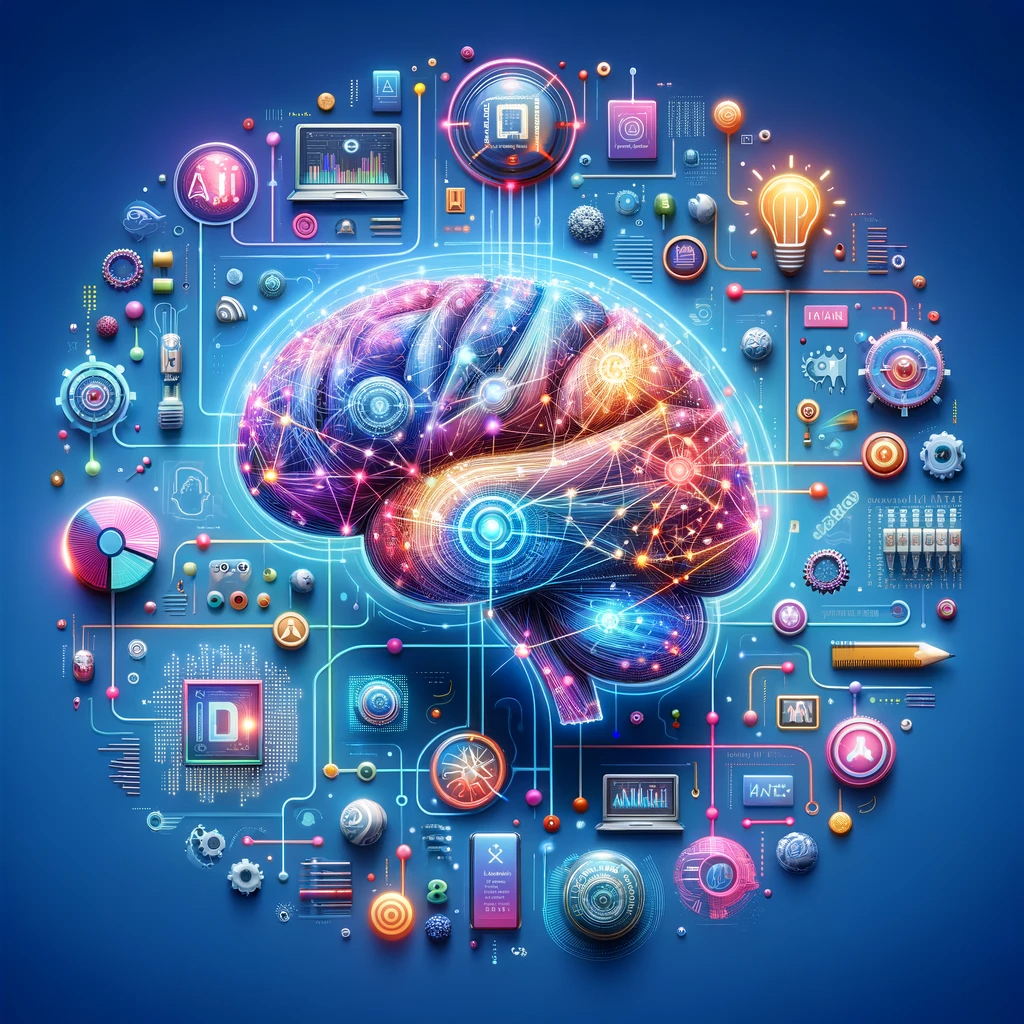
Paknaukris
FollowOverview
-
Founded Date julio 10, 1988
-
Sectors Agronegocios
-
Posted Jobs 0
-
Viewed 54
Company Description
What is Artificial General Intelligence: A 2025 Beginner’s Guide
We might make money when you click links to our partners. Find out more.
What is artificial general intelligence (AGI), and why does it matter? As one of the most talked-about topics in technology today, it has stimulated a race amongst top companies like OpenAI and Google to turn this innovative idea into reality. Understanding AGI is necessary since it has the potential to revamp industries, affect our society in profound ways, and fishtanklive.wiki change the way we interact with technology. Here’s what you need to know about what it may be able to do, how it might change industries and fields, and the substantial challenges facing its advancement.
KEY TAKEAWAYS
• AGI varies from conventional AI in crucial methods in that it would have the ability to believe, discover by itself, and adjust to brand-new obstacles like people unlike standard AI, which is designed for specialized jobs and operates within a limited scope. It requires human beings to update and improve capabilities. (Jump to Section).
• Once it comes true, AGI would have the ability to make amazing advances in several fields, including healthcare, research, and finance sectors. (Jump to Section).
• Creating AGI is difficult due to the research study challenges that include technical, ethical, and societal concerns. Addressing these challenges is main to preserving the safe and positive development of this technology. (Jump to Section)
Featured Partners: Expert System Software
Find out more
TABULATION
What is Artificial General Intelligence (AGI): A Clear Definition.
Understanding AGI vs Traditional AI.
Potential Applications of Artificial General Intelligence.
Challenges in Artificial General Intelligence Research.
3 Introductory AGI Courses to Consider.
Frequently Asked Questions (FAQs).
Bottom Line: Why Knowing What Is Artificial General Intelligence Matters.
What is Artificial General Intelligence (AGI): A Clear Definition
Artificial general intelligence, or AGI, describes a type of artificial intelligence (AI) that can translate, find out, and perform any cognitive job that a human can do. Unlike today’s AI, which is developed to deal with particular jobs like advising products or processing information, AGI would be able to adjust to new obstacles and use knowledge throughout various fields. To put it simply, this advanced type of AI would think and reason like a human. While AGI holds fantastic potential, it deserves noting that it is still a principle today, without any completely established systems readily available yet.
Key Capabilities of Artificial General Intelligence
AGI would have a range of capabilities that mimic human intellectual functions, so it can perform jobs beyond the narrow focus of the existing AI tools in the market. Some crucial abilities include the following:
Human-Like Reasoning: The technology would be able to comprehend and make choices the way humans do. It would believe seriously, solve issues, and create options based upon its own experiences and past interactions, similar to how we use previous understanding to new situations.
Solving Unfamiliar Problems: Among AGI’s strengths is its prospective to tackle brand-new problems. Unlike conventional AI, which is trained to carry out particular jobs, AGI would have the capacity to handle problems it hasn’t been directly trained to resolve. It could determine how to approach a totally brand-new difficulty, similar to people do when confronted with something we’ve never encountered before.
Self-Learning and Adapting: AGI might fine-tune its skills and gain from experience, without the need to be by hand upgraded whenever. It would observe and evaluate data, learn from mistakes, and discover better ways to complete jobs in time. This suggests AGI might adapt to new circumstances and improve at jobs by itself.
Using Knowledge Across Different Areas: AGI would be able to take what it finds out in one area and use it to other jobs. For instance, if it found out how to resolve mathematics issues, it could use that knowledge to resolve obstacles in other fields, like science or service. The capability to transfer abilities across various locations is something human beings do naturally and would make the technology flexible in diverse sectors.
Understanding and Reacting To Emotions: Recognizing and responding to human feelings would also be within AGI’s capabilities. This would be necessary in settings where understanding people’s feelings matters, such as healthcare, client service, or social circumstances. By reacting to feelings appropriately, AGI would be much better geared up to deal with human beings in an efficient method.
Understanding AGI vs Traditional AI
The table listed below provides a photo of the significant differences between AI and standard or narrow AI by highlighting their capabilities, flexibility, and present status.
AGI would have the capability to believe, discover autonomously, and adapt to brand-new challenges like humans. However, it is still theoretical and has actually not been understood yet. On the other hand, traditional AI is built for specific tasks and operates within a repaired scope. It can not adapt to brand-new tasks without human input.

For instance, an AGI could learn to diagnose medical conditions, then use that knowledge to develop personalized treatment plans-and even change its approach based on the client’s development. Additionally, it might use this problem-solving ability to tasks in totally various fields, such as developing organization methods or recommending on ecological conservation. On the other hand, traditional AI, like a diagnostic tool, can only examine medical data for particular conditions. It can not adjust to other areas or improve on its own.

Potential Applications of Artificial General Intelligence
While AGI isn’t here yet, its prospective applications cover various fields and hold excellent guarantee of extreme developments in numerous sectors. Without being restricted to specific jobs like narrow AI, AGI would be extremely flexible and might use its abilities to solve multi-disciplinary issues. It could get rid of challenges currently beyond the capabilities of existing AI applications.
Transforming Healthcare
AGI would alter the game in health care by identifying complex and uncommon diseases with greater accuracy, even in cases where symptoms are uncertain or overlap with multiple conditions. It might develop highly customized treatment plans by studying patient history, hereditary information, and real-time health data. In addition, AGI might speed up drug discovery, determining possible treatments in weeks instead of years by processing massive datasets and running predictive simulations.
Advancing Scientific Research
In clinical research study, AGI would be able to simulate experiments, analyze intricate datasets, and create hypotheses. It might expedite advancements in quantum physics, genomics, and environment science. By integrating understanding from numerous domains, the technology could reveal connections and options that may otherwise go unnoticed by traditional AI.

Improving Industry
Organizations in the industrial field could utilize AGI to increase efficiency in real-time by handling entire supply chains. It would forecast and solve interruptions before they happen. In manufacturing, it might oversee self-governing factories, optimizing production procedures while preserving security and quality requirements. Its capability to change to altering scenarios would make it a vital tool in commercial environments.
Enhancing Business Strategy
AGI could improve service decision-making by evaluating market patterns, customer habits, and functional information to find chances and risks. In contrast to narrow AI systems, AGI would innovate solutions to challenging organization issues, such as handling financial uncertainty or forecasting long-term market shifts. Its capability to learn from diverse sources would empower businesses to remain competitive.
Redefining Finance
In the financial sector, AGI might increase forecasting precision by discovering patterns in vast quantities of financial information, so financiers and institutions can make informed choices. It would also have the ability to spot fraud in real-time by recognizing subtle anomalies that traditional AI systems may miss. Additionally, AGI might build more robust financial designs, factoring in complex variables and scenarios to reduce risks.

Challenges in Artificial General Intelligence Research
Developing AGI is one of the most enthusiastic objectives in technology, however it includes many troubles. These challenges include technical, ethical, and social locations, making AGI advancement an intricate and multi-faceted process. Overcoming the following challenges is tantamount to guaranteeing safety, promoting ethical standards, and thoroughly planning how AGI’s intro and usage will impact people, markets, and society as a whole:
Making AGI Truly Flexible: AGI would require to deal with a vast array of issues and adapt to new situations, just like people. Building a system of flexibility is extremely difficult since existing AI tools are not developed to believe or discover at this level of elegance.
Massive Computing Needs: To duplicate human intelligence, AGI would require massive quantities of computing power to procedure info from diverse sources quickly. Figuring out how to make such systems powerful and effective enough for real-world usage is a significant difficulty.
Understanding Human Intelligence: We do not totally comprehend how human thinking works, especially complicated elements like instinct or awareness. Without this understanding, it’s challenging to develop makers that can replicate human-like thinking.
Making AGI Safe and Ethical: AGI could possibly be misused, like to create prejudiced systems or harmful tools like autonomous weapons. Researchers should make certain that AG is constructed responsibly and follows stringent ethical standards. This is a tricky task that requires global cooperation.
Keeping It Under Control: There’s a threat AGI might act in methods we do not expect, specifically because it would have the capability to discover and alter gradually. Ensuring that these systems remain aligned with human values and are safe to utilize is among the greatest difficulties in AGI research study.
Influence on Jobs and Society: If AGI becomes a reality, it might change tasks or trigger financial inequality by benefitting some groups more than others. Getting ready for these social effects is simply as essential as constructing the innovation itself.
High Costs and Resources: Researching AGI necessitates a great deal of cash, time, and expert knowledge. Not all organizations have these resources, decreasing progress and leaving smaller services out of the race.
3 Introductory AGI Courses to Consider

Familiarizing yourself with AGI can offer you a competitive edge, whether you want to advance your career in AI or merely want to stay notified about emerging technologies. The following initial courses can help you acquire a much deeper understanding of what synthetic basic intelligence is, so you can strengthen your knowledge about this appealing AI improvement.
Artificial General Intelligence (AGI): An Initial Course on Udemy
This Udemy course supplies an essential understanding of AGI, suitable for newbies without any previous experience. The course covers appropriate subjects, including the foundations of AI, the essentials of AGI, and the most recent trends in the field. It likewise explores the benefits, threats, and obstacles connected with AGI, equipping you with insights into what the innovative technology can attain. The whole course includes 15 lectures and can be completed in approximately 45 minutes. Upon conclusion, you will get a certificate to strengthen your credentials in the task market. This introductory course expenses $24.99.
Intro to Artificial General Intelligence (AGI): Future of AI on Udemy
Udemy’s initial course uses a detailed introduction of AGI for students with no technical background. It talks about the historical context and structure of AGI, the in between narrow AI and AGI, and ethical factors to consider surrounding its development. In addition, it addresses future patterns in AI and AGI, shedding light on the obstacles and chances that lie ahead. Spanning one hour and 46 minutes, the course consists of 39 lectures, on-demand video, and downloadable resources. It likewise has a dry run at the end to enhance your understanding. You will be awarded a certificate when you finish the course. It is readily available as part of Udemy’s premium strategies, starting at $20 monthly, or as a different purchase of $49.99.
Artificial General Intelligence (AGI) on Udemy
This Udemy course brings a clear and concise intro to the subject, with on-demand videos and 22 lectures. It elaborates on significant AGI ideas and the role of robotics in AGI development. It likewise takes a look at the ethical, software application, and hardware challenges in creating AGI. The course offers tests to evaluate your understanding and a certificate of completion. Priced at $44.99, it is produced learners at any level, making it available and important for anybody who wishes to find out more about AGI.

Frequently Asked Questions (FAQs)
Achieving AGI might revolutionize markets, boost decision-making, and cause significant developments in technology. However, it also raises concerns about ethics, job displacement, and the requirement for proper guideline to make sure it is established securely and properly.

Experts disagree on how far we are from attaining AGI. Sam Altlman of OpenAI thinks in 2025, AI agents might sign up with the labor force, eventually paving the way to AGI development. On the other hand, a survey of AI scientists puts the median estimate around 2047. Despite rapid AI improvements, present systems are still restricted to narrow jobs and lack the broad, versatile reasoning of humans-so AGI is likely still decades away.
The concept of AGI totally replacing people is still debated. Despite the fact that it’s most likely that AGI will help us by taking over repeated tasks, there is a possibility that it could displace specific tasks. That stated, instead of totally changing people, AGI is anticipated to work alongside us, managing technical responsibilities while we concentrate on tasks that require imagination and empathy. At the end of the day, the impacts of AGI will depend upon how society selects to manage and incorporate it.
Bottom Line: Why Knowing What Is Artificial General Intelligence Matters
Understanding artificial basic intelligence is important due to the fact that this innovation could change industries, resolve hard problems, and change how we utilize AI. But as we start to develop AGI, we must carefully resolve numerous obstacles, including technical problems, ethical issues, and its overall impact on society. By discovering AGI’s potential and threats, we can work towards making certain it is developed properly and used in ways that would benefit everybody.
